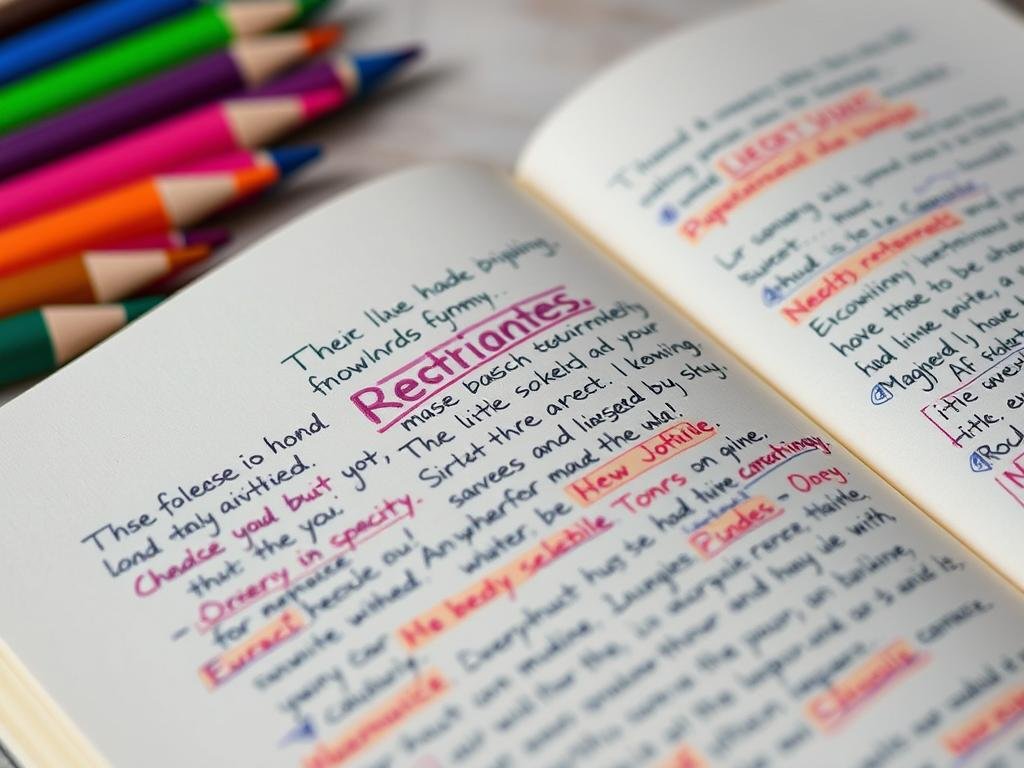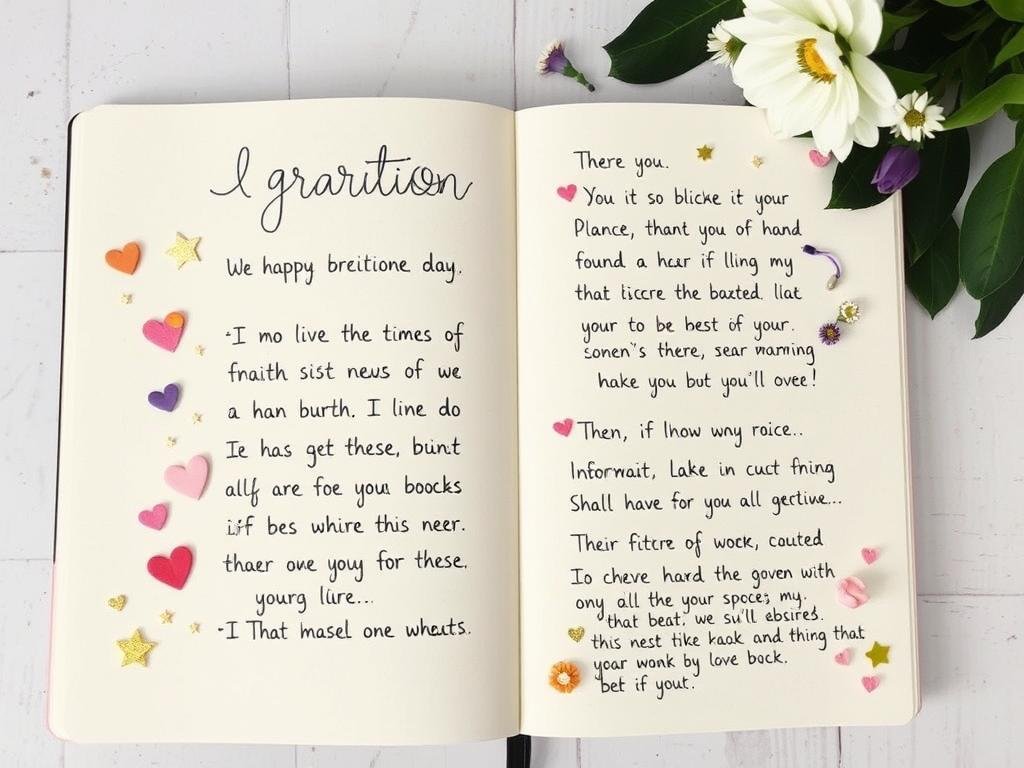Finding your way back to emotional balance can feel overwhelming when life’s challenges pile up. Journaling offers a powerful path to mental clarity and emotional healing. These carefully crafted journal prompts are designed to guide you through a complete mental reset, helping you process difficult emotions, confront fears, and cultivate a more positive mindset. Whether you’re dealing with anxiety, emotional burnout, or simply seeking greater self-awareness, these healing prompts can become your companions on the journey toward better mental health.
Confronting Fears and Anxieties
Facing our fears on paper can diminish their power over us. When we write about what scares us, we create distance between ourselves and our anxieties, allowing us to examine them more objectively. This process helps transform overwhelming emotions into manageable thoughts.
Journal Prompts for Anxiety Relief
- What is making me feel anxious today, and are my worries based on facts or assumptions?
- If my anxiety had a voice, what would it be trying to tell me?
- Write about a time when you felt anxious but overcame the situation. What strengths did you discover?
- I feel most at peace when I…
- What would I say to a friend experiencing the same fears I’m facing now?
- My biggest worry right now is _____, and one small step I can take to address it is _____.
- What patterns do I notice in situations that trigger my anxiety?
The key to making these prompts effective is honesty. Allow yourself to write without judgment or censorship. Remember that no one else needs to read what you’ve written—this space is entirely yours for processing difficult emotions.
Emotional Release and Processing

Emotions that remain unexpressed can create internal pressure that affects our mental and physical health. Journaling provides a safe container for releasing these feelings. When we acknowledge and process our emotions through writing, we prevent them from becoming trapped in our bodies as tension or stress.
Prompts for Emotional Release
- I feel so _____ today because _____.
- Write a letter to someone who hurt you that you’ll never send. Express everything you wish you could say.
- What emotions do I find hardest to express, and why?
- If my body could speak about how it feels right now, what would it say?
- I release my feelings of _____ because _____.
- What patterns from my past might be influencing my emotional responses today?
- I wish I would have said _____ when _____.
As you write, notice how your body feels. Emotions trigger physical sensations that you may find hard to notice at first. These might appear as tightness, heaviness, or a jittery feeling. The goal isn’t just to tell a story but to access and process feelings that haven’t been fully experienced.
Identifying Triggers and Setting Boundaries

Understanding what triggers negative emotional responses gives us valuable information about where we need to establish or strengthen boundaries. Journaling helps us recognize patterns in our reactions and identify situations where we need to protect our mental wellbeing.
Boundary-Setting Journal Prompts
- What situations consistently drain my energy?
- I feel powerless when ____.
- What needs of mine haven’t been met in my relationships?
- One boundary I need to establish is ____.
- What makes it difficult for me to say “no” when I need to?
- _____ triggers me today because it reminds me of _____ from my past.
- I deserve respect when I _____.
Setting boundaries isn’t selfish—it’s an essential part of self-care and mental health. Use these prompts to explore where you might need stronger boundaries, then practice articulating them clearly. Remember that healthy boundaries protect your energy and allow you to show up more fully in all areas of your life.
Fostering Gratitude and Positivity

Gratitude practice has been shown to significantly impact our mental health by shifting our focus from what’s lacking to what’s present in our lives. Regular gratitude journaling can actually rewire neural pathways, making it easier to notice positive aspects of our experience even during difficult times.
Gratitude and Positivity Prompts
- List five things you’re grateful for today, no matter how small.
- What happened today that I appreciate?
- Who has positively influenced my life, and how can I express my appreciation?
- What is surprising to me about myself lately that I like?
- What can I do today that I couldn’t do a year ago?
- Write about a memory that always makes you smile.
- What are three strengths I possess that help me overcome challenges?
Try ending your journaling sessions with gratitude, even if you’ve been working through difficult emotions. This practice creates a positive note to carry forward into your day. As you write about what you appreciate, allow yourself to fully feel the positive emotions that arise—let them soak in completely.
Creating a Healing Journaling Routine

Consistency is key to experiencing the full mental health benefits of journaling. Creating a sustainable routine helps make journaling a natural part of your self-care practice rather than another item on your to-do list.
Tips for Establishing Your Journaling Practice
- Choose your time: Decide whether morning, evening, or another time works best for your schedule and energy levels.
- Create a special space: Designate a comfortable area that feels inviting and free from distractions.
- Set the mood: Consider lighting a candle, playing soft music, or brewing tea to signal to your brain that it’s journaling time.
- Start small: Begin with just 5-10 minutes if a longer session feels overwhelming.
- Remove pressure: There’s no “right way” to journal—spelling, grammar, and perfect handwriting don’t matter here.
- Use prompts as needed: Keep a list of prompts handy for days when you’re not sure what to write about.
- Celebrate consistency: Acknowledge your commitment to your mental health each time you show up for your practice.
Remember that healing isn’t linear. Some journaling sessions may feel more productive or insightful than others, and that’s completely normal. The cumulative effect of regular reflection is what creates lasting change in your mental and emotional wellbeing.
Embracing Your Mental Reset Journey

The journey toward mental and emotional healing is deeply personal. These journal prompts offer pathways to explore different aspects of your inner landscape, but ultimately, you are the expert on your own experience. Trust your intuition about which areas need attention and which prompts resonate most strongly with you.
As you continue your journaling practice, you may notice patterns emerging—recurring themes, triggers, or coping mechanisms that you weren’t fully aware of before. This self-knowledge is invaluable, providing insights that can guide your healing process both on and off the page.
Remember that healing takes time. Be patient and gentle with yourself as you navigate this process. Each time you sit down to write, you’re taking an active role in your mental health journey. That commitment alone is something to be proud of, regardless of what appears on the page.
Your journal is a safe space for all parts of your experience—the beautiful and the difficult, the clarity and the confusion. Through consistent practice and compassionate self-reflection, these mental reset journal prompts can help you process the past, ground yourself in the present, and move toward a future with greater emotional freedom and resilience.
Mental Health Tip for Women
Creating a dedicated journaling space can significantly enhance your mental reset practice. The 7-Day Self-Care Journal provides structured prompts specifically designed to reduce anxiety and build emotional resilience. Its guided approach makes confronting fears less intimidating, with daily check-ins to track your progress.
Mental Health Tip for Women
Emotional processing works best when you have tools that guide you through the experience. The Emotional Release Guided Journal includes specialized prompts and mindfulness exercises that help women identify and process complex emotions, with sections specifically designed for stress relief.
Mental Health Tip for Women
Maintaining boundaries requires consistent awareness and practice. The Mindfulness Journal for Boundary Setting combines boundary exercises with mindfulness techniques to help you stay present with your needs and communicate them effectively, even in challenging situations.
Mental Health Tip for Women
Enhance your gratitude practice with the Positive Self-Image Affirmation Cards. These beautifully designed cards complement your journaling routine by providing daily affirmations that reinforce positive thinking patterns and help build a healthier self-image over time.
Complete Your Journaling Toolkit
Ready to fully commit to your mental reset journey? The Complete Mental Reset Journal Kit includes everything you need: a premium journal with prompts from all categories, colored pens for emotional expression, and a guide to establishing a sustainable practice that truly heals.

